The mum and stepdad of a special little boy who ‘touched so many people’s lives’ have pledged to raise over £100,000 in his memory after he died from a rare incurable disease, aged 11, in September last year.
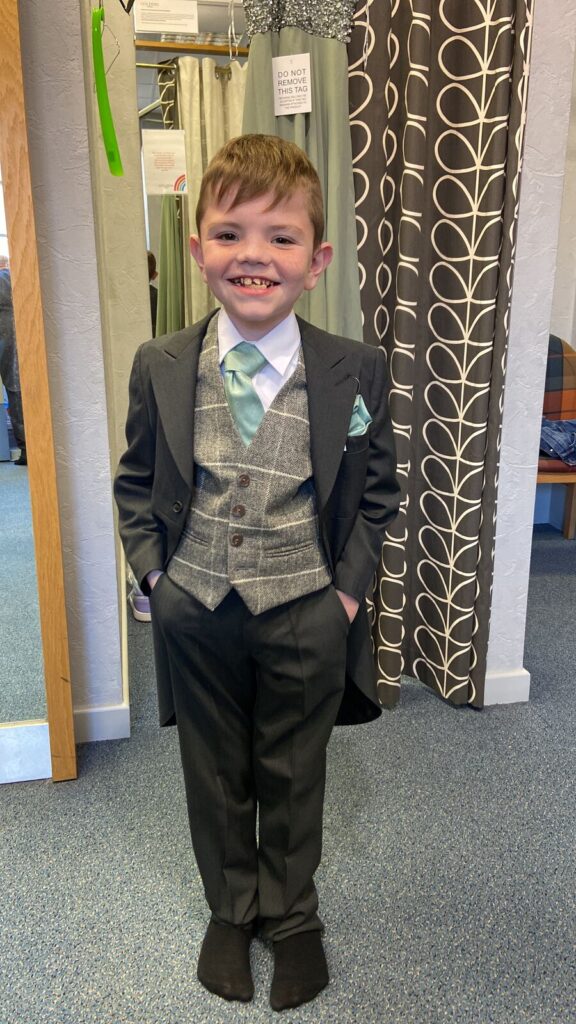
Elliott-James Heslop, or Elliott as he was known to family and friends, was diagnosed with a rare, incurable disease called TTC7A deficiency when he was just three months old; a condition that causes diarrhoea, inflammation of the intestines, bowel obstructions, immune dysfunction, and an inability to absorb nutrients.
He had his first surgery at just a few hours old and underwent multiple surgeries to try and fix strictures in his bowel. Unfortunately, these were unsuccessful, and Elliott had to have an Ileostomy. Unable to absorb nutrients in the usual way, Elliott was TPN-dependent from birth, meaning artificial nutrients were given to him via a central line called a Hickman Line.
Elliott spent the first eleven months of his life in hospital and at just eight months old underwent a bone marrow transplant at Great Ormond Street Hospital.
His condition meant that when he was at his worst, he couldn’t walk very far as it affected his bone density and muscle mass. It also prevented him from joining a football team or going on school residentials. It also restricted what Elliott was able to do in a day as he would need to be home at certain times for his TPN treatment, which also meant the family were not able to go abroad. However, mum Kayleigh Eley and husband, Ross, Elliott’s stepdad, from Cambourne in Cambridgeshire, said Elliott loved trips to caravan parks – and said he went swimming for the first time last year after finding out about a special wetsuit he could wear in the water.
Despite the impact of his condition, Kayleigh and Ross said Elliott never moaned.
“He would have his moments like with football, where he would say I wish I could play football, but it would only be the odd comment now and then. He never moaned, he just got on with it,” Kayleigh said.
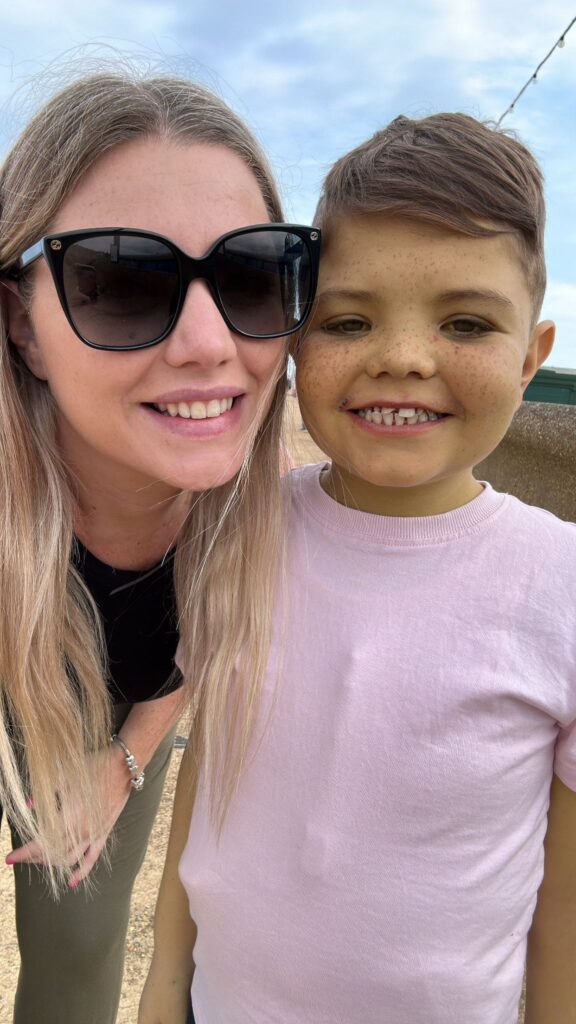
Although they always knew Elliott’s condition was incurable, Kayleigh said it was still a shock when he died.
“Even though you know it’s not curable you just kind of live every day and go with it. But we didn’t expect him to go downhill as quickly as he did.”
It was in December 2023, that Elliott caught the flu, which impacted his liver and meant he needed to be assessed for transplant again. Kayleigh and Ross were told Elliott would be listed for a multi-visceral transplant, but ten days later after Elliott’s condition worsened, he was rushed back into hospital with painful pancreatitis and in July last year, the family were given the devastating news that Elliott’s condition could no longer be treated. Sadly, Elliott passed away in September.
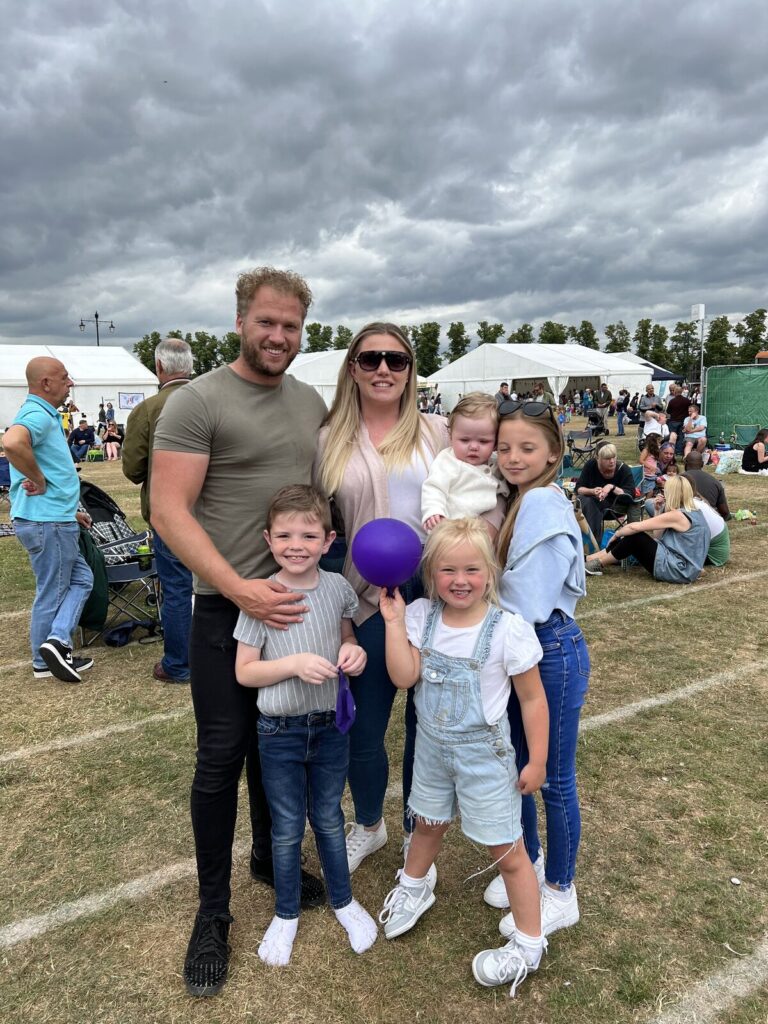
Kayleigh and Ross, who have three-year-old daughter, Maddison, together, and Scarlett, 15, and Florence, 7, both from previous relationships, set about fundraising to create some special memories with Elliott before his death as well as raise money for the Cambridge Children’s Hospital (CCH), through Addenbrooke’s Charitable Trust (ACT).
The Cambridge Children’s Hospital is set to be built by 2030 and will be the first specialist children’s hospital for the East of England; the only region in the UK without one. Bringing together clinical excellence from two NHS Trusts with pioneering research from the University of Cambridge, the new five-storey 35,000sqm hospital will be based at the heart of the Cambridge Biomedical Campus, Europe’s largest biomedical campus.
After writing to Elliott’s favourite football team, West Ham, every day for three months, Ross finally got lucky and both he, Elliott and Scarlett were invited down to West Ham for a training session with the players, where Elliott got to meet one of his favourites, James Ward-Prowse, and walk onto the field as a team mascot.
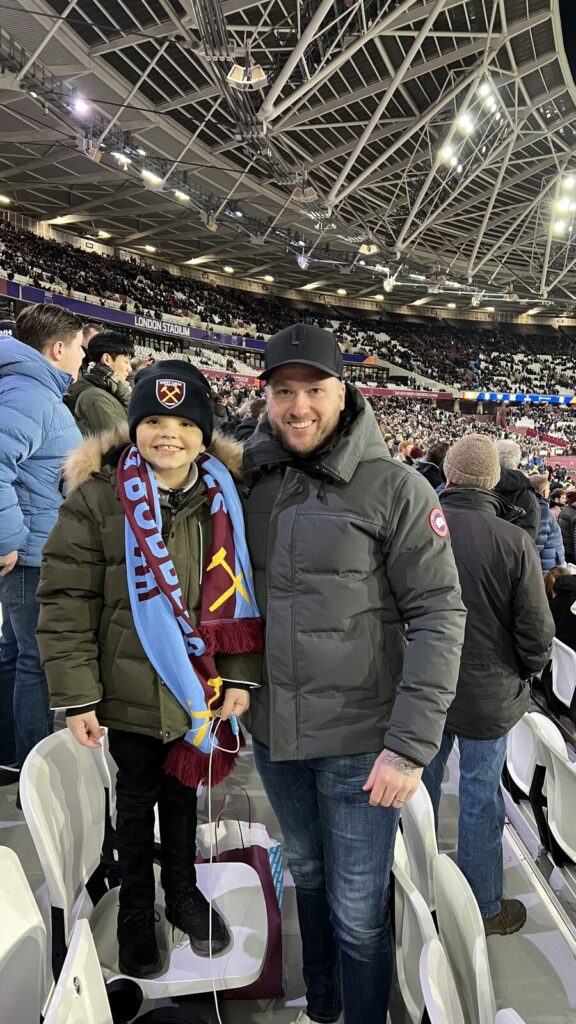
Ross – who came into Elliott’s life at six years old – describes himself as a ‘bonus dad’ rather than stepdad and said: “I feel really privileged to have had Elliott in my life. He’s like the son I never had.”
Kayleigh describes her son as “cheeky, funny, very caring and very sensitive” adding, “So many people have said to me how he really touched their lives. I know he’s amazing because he’s my child and I know how great he is, but he did, he really touched other people’s lives.”
As for how they are, Ross says: “I don’t think I have accepted it yet because I don’t want to. The worst thing about it is, is that life just keeps on going on around you. It’s the worst pain ever. I’d rather someone chopped off my legs than this. Elliott was my bonus child and the way I feel is the worst feeling ever.”
Mum Kayleigh said: “People think you are ok but we have to be because we have our other kids. But I still expect to see him sometimes. Sometimes you look and think he is going to be there.”
Ross said he came off Facebook for six months after Elliott’s death because he found all the memories too painful and says: “Every day is different. Every hour is different.”
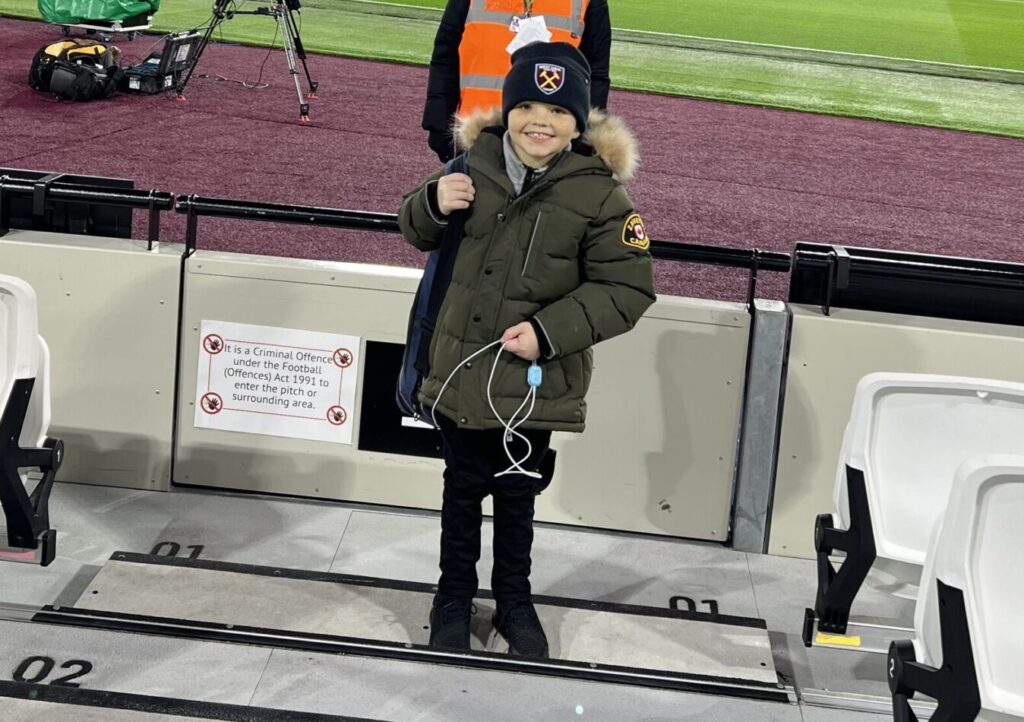
The couple say they remember Elliott as the cheeky little boy who would play pranks on his family, including the time he hid inside Scarlett’s wardrobe and started playing with the LED lights on her ceiling before jumping out to scare her.
Kayleigh also speaks movingly about Elliott’s best friend who keeps a picture of Elliott in his bedroom and a candle to remember him by and when he has had a bad day, will still call Elliott’s phone to leave a message.
Ross and Kayleigh say the number eleven has come up a lot in their lives – both before, and since, Elliott’s death aged eleven. When Ross completed a charity walk from his home in Cambourne to the West Ham grounds they arrived at 11am. West Ham also honoured Elliott’s memory by clapping him during a game at the eleventh minute and after moving house recently, they moved to number eleven, with Ross saying – “Elliott will never leave us. Not in a million years.”
The couple have pledged to raise £100,000 for the new Cambridge Children’s Hospital, through Addenbrooke’s Charitable Trust (ACT) as a way of thanking Addenbrooke’s for the amazing care Elliott received since birth – describing his consultant, Dr Camilla Salvestrini, as “amazing”.
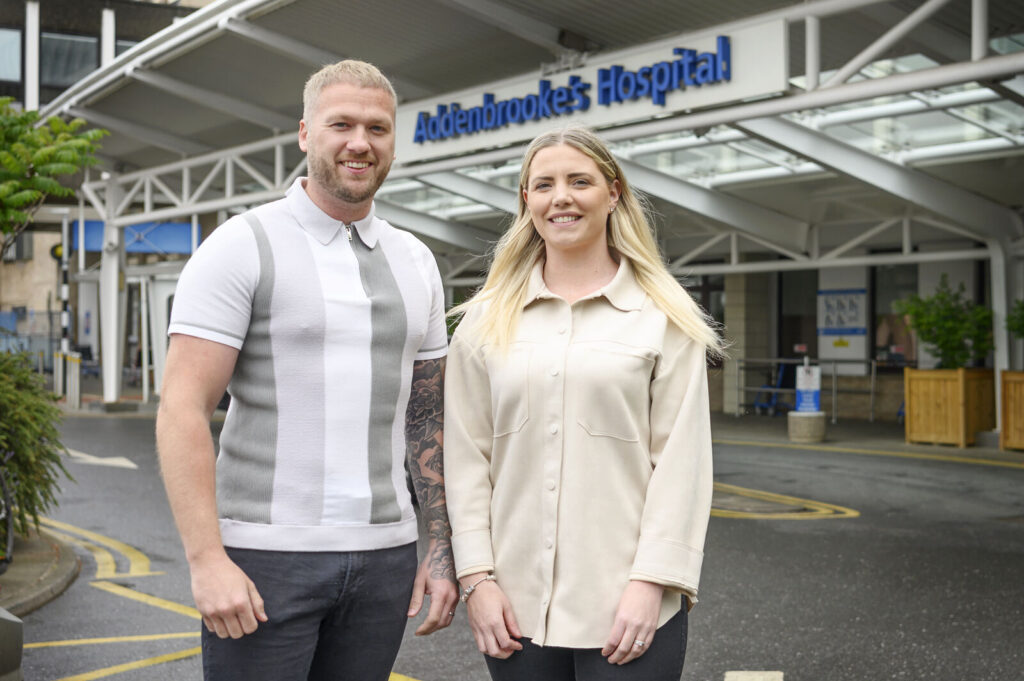

Although their target is £100,000, Kayleigh and Ross are hoping to boost their target to £125,000 so that they can fully equip one of the rooms within the Cambridge Children’s Hospital and have it named after Elliott.
“We’d love to have something named after Elliott in his memory,” said Kayleigh, “and know that we helped fund something that would be for the whole community. It’s raising money for the next generation of children and supporting all the families that will be going there.”
Fundraising efforts so far have included the walk from their home in Cambourne to the West Ham football grounds; a children’s sponsored swim; a 30th tea party in July to celebrate ACT’s 30th and a 72-hole golf challenge at Cambridge Country Club earlier this month, with a 9-hole lesson donated by PGA Professional Joel Rickard.
Ross’ next challenge will be this September, when he and his boss will complete the walk along Hadrian’s Wall over three days, setting out on the 11th.
Click here to donate to Elliott’s page.







